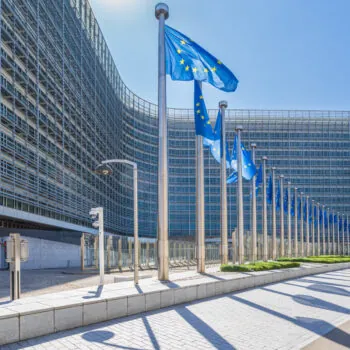The UK needs to gear up effective governance to ensure delivery of the net zero transition in the short- and long-term. The success of the transition requires broad ownership and social consensus. It will be critical that the public, NGOs and wider civil society and businesses are meaningfully included in shaping the “how” of transition.
As the Climate Change Committee (CCC)’s latest Progress Report acknowledges: “Meeting Net Zero will require the active involvement of people to make greener choices in a variety of roles and responsibilities […] Effective public engagement is therefore essential to this transformation.”
Including people in the “how” of transition
The UK public is widely concerned about climate change and supportive of government-led action to address it. Communities and people across the UK have already played an important role in shaping the transition in different ways. Examples include the Climate Assembly UK, smaller-scale community-led initiatives and the shaping of local authority climate plans.
However, public support for the kind of changes required is at risk if people face uneven costs and impacts of both transition and the soaring cost-of-living crisis without adequate support. This risk is heightened by low public trust in government: 73% of the English public don’t trust the UK government to take decisions that will improve their lives. Meanwhile, government attempts to restrict campaigning, judicial review and protest undermine the ability of wider civil society to shape decision making.
It will therefore be necessary to engage people on the “how”: what net zero means in practice, the choices, and how the benefits and costs should be shared. Politics and governance must ensure that all stakeholders have the opportunity to co-design and deliver the UK’s net zero transition. Their inclusion will cement broad and long-term ownership and a firm political mandate for bold actions. The CCC’s recommendations include:
- A long-term strategy for engaging communities and businesses in net zero delivery.
- More strategic public communications on the timelines, costs and benefits of net zero.
- Embedding participatory and deliberative methods in the net zero policy making process.
The role of NGOs and businesses
Businesses and non-governmental organisations (NGOs) also have a key role to play. The recent successful legal challenge against the government’s Net Zero Strategy showed that NGOs and wider civil society are an important force in securing legal clarity and accountability within the UK’s Climate Change Act. But a far greater role is possible. From climate specialists to social and community-focused actors, organisations can make informed contributions about what is fair and practicable. They can enable citizen participation and communications, including feedback loops between people and policymakers at all levels.
Even in the face of the cost-of-living crisis, civil society and business are offering solutions that can help safeguard vulnerable people while also bringing us closer to our climate targets. Examples include implementing measures to prevent fuel poverty and improving home energy efficiency. The Climate Change Act structure recognises that economic, fiscal and social concerns will inform choices about how long-term targets and budgets should be met.
Participation and engagement for more effective climate action
Deliberative and participatory engagement processes, which actively include the public in decision making, can enable more effective decisions on climate. The diversity of expertise improves the quality of decision making, and greater trust and buy-in for the process and outcomes of transition is cultivated. Also, the means of minimising costs and negative impacts, identifying protections, and maximising co-benefits are more effectively planned. Inclusion can also act as “political insurance”, protecting decisions against the threat of pushbacks or delays because of poorly handled decisions or unfair impacts leading to people deprioritising the transition.
It is unclear how the government plans to engage the public and other key stakeholders, and ensure inclusive participation in determining the future direction of the transition. The Net Zero Strategy provided little detail. Successful delivery of the transition requires a long-term pathway for co-designing, delivering, and monitoring in a way that enables meaningful, inclusive whole-of-society engagement and participation. This should include multi-level and inclusive deliberative and participatory processes embedded in policy making across government.
This will be key for growing and maintaining public support and shaping a more equitable distribution of the costs and benefits; a shared, informed 2050 vision; and ensuring a strong long-term mandate for the transition. Such support is a key part of the how of the UK’s successful transition to net zero.


